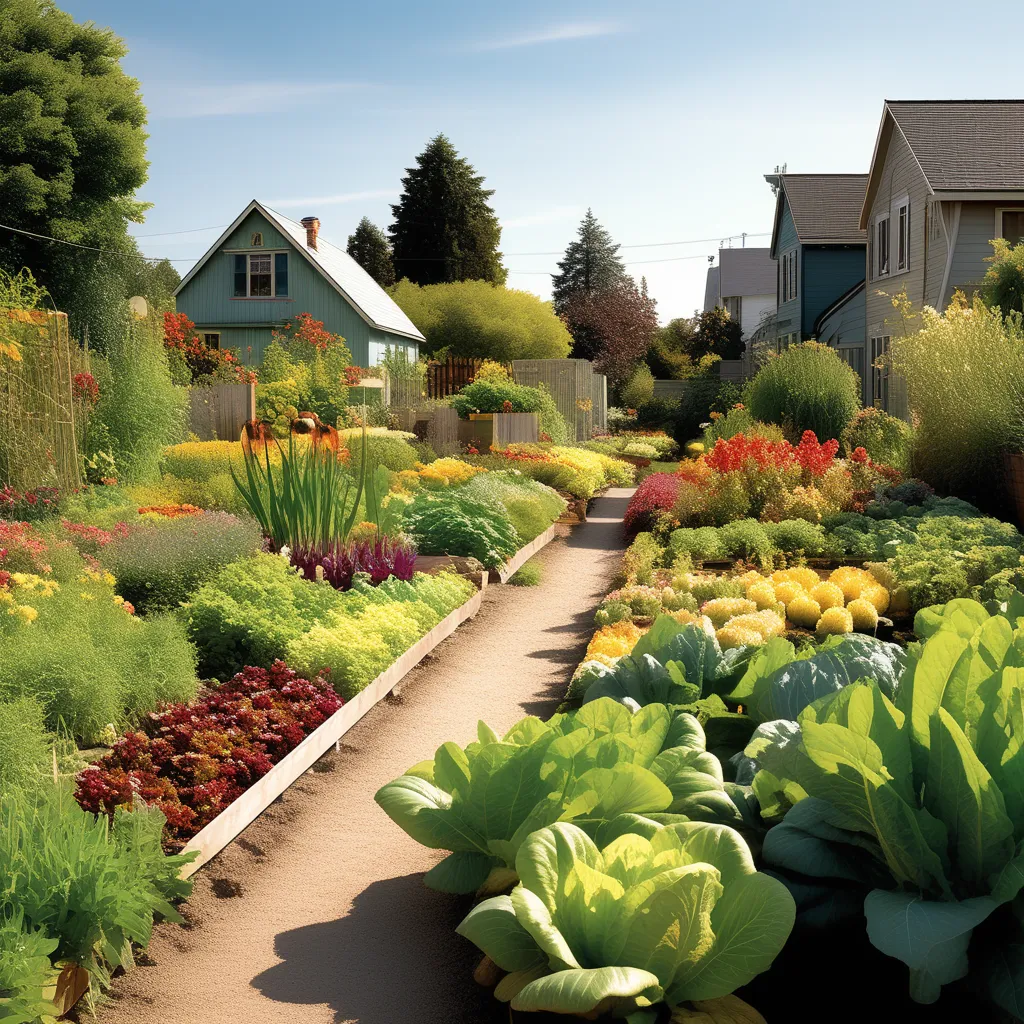The Power of Community Gardens
In the heart of neighborhoods, on vacant lots or tucked behind buildings, community gardens are quietly sprouting transformative changes. Beyond being patches of green, these communal spaces wield a unique power to bring people together, foster sustainability, and cultivate a sense of belonging. Let's dig into the rich soil of community gardens and explore the many ways they nurture both plants and people.

Cultivating Connections
My First Encounter
I still remember stumbling upon my local community garden. Tucked away behind a row of houses, it was a vibrant oasis tended to by neighbors of all ages. Intrigued, I joined in, and little did I know that this would mark the beginning of a journey into a tight-knit community.
Neighborly Bonds
Breaking Ground Together
Community gardens are not just about growing plants; they're about cultivating relationships. As we collectively broke ground, planted seeds, and swapped gardening tips, bonds were formed. It became a place where neighbors became friends, sharing not just vegetables but stories and laughter.
Bridging Generations
One striking aspect of community gardens is the intergenerational exchange. Elder gardeners share age-old wisdom, while the younger ones infuse energy and technological know-how. It's a beautiful dance of generations, fostering mutual respect and understanding.
A Green Haven in Urban Spaces
My Urban Escape
Living in a bustling city, the community garden became my refuge. It provided a slice of nature in the midst of concrete. The rustling leaves, chirping birds, and the therapeutic act of digging in the soil created a sanctuary where I could momentarily escape the urban hustle.
Urban Sustainability
Green Lungs for Cities
Community gardens play a vital role in urban sustainability. They act as green lungs, filtering air, absorbing pollutants, and contributing to overall environmental health. The micro-ecosystem they create is a testament to the potential of small green spaces in mitigating the ecological impact of urban living.
Waste-to-Compost Magic
Composting is a magical transformation that happens in community gardens. Kitchen scraps and garden waste turn into nutrient-rich compost, closing the loop on organic waste. It's a small-scale, decentralized solution that reduces the burden on landfills and promotes a more circular approach to waste management.
Food Security and Accessibility
My Bounty of Fresh Produce
One of the most rewarding aspects of community gardens is the harvest. The joy of plucking ripe tomatoes or crisp lettuce that you had a hand in growing is unparalleled. It's not just about the taste; it's a reminder of the power of self-sufficiency.
Addressing Food Deserts
Green Oases in Food Deserts
Community gardens contribute to addressing the issue of food deserts – areas with limited access to fresh, healthy food. By bringing fresh produce closer to home, these green oases become pillars of food security, ensuring that everyone, regardless of income, has access to nutritious options.
Educational Gardens
Many community gardens go beyond food production; they serve as educational spaces. Teaching residents, especially children, about plant life cycles, nutrition, and the importance of sustainable agriculture fosters a culture of informed consumers and responsible food choices.
Mental Health and Well-being
My Therapeutic Escape
The therapeutic benefits of gardening are well-known, and community gardens amplify these effects. I found solace in the rhythmic act of planting and weeding, a mental retreat from the demands of everyday life.
Nature's Healing Touch
The Green Prescription
Numerous studies highlight the positive impact of nature on mental well-being. Community gardens become green prescriptions, offering a natural remedy for stress, anxiety, and depression. They are open-air sanctuaries where the simple act of being amidst plants promotes mental clarity and a sense of calm.
Creating Garden Therapy
Some community gardens even embrace the concept of horticultural or garden therapy. These programs recognize the healing potential of gardening and create spaces specifically designed to support individuals facing mental health challenges.
Collective Empowerment
My Voice in Bloom
Community gardens empower individuals to take an active role in shaping their living environment. I witnessed firsthand how a simple garden plot could be a canvas for expressing creativity, initiating change, and giving residents a voice in community decisions.
Social Resilience
Building Resilient Communities
In times of adversity, community gardens become symbols of resilience. During challenging periods, whether economic downturns or global crises, they serve as sources of mutual support. Shared resources, knowledge, and a collective determination to overcome obstacles make these spaces anchors of community strength.
Greening Abandoned Spaces
Community gardens often breathe life into neglected or abandoned areas. Transforming forgotten corners into thriving green spaces not only enhances the physical environment but also sends a powerful message of community pride and resilience.
The Growing Legacy
In conclusion, the power of community gardens lies not just in the vegetables they produce but in the connections, sustainability, and well-being they cultivate. These green pockets in our neighborhoods are a testament to the potential for positive change when individuals come together with a shared purpose. As we tend to the soil and nurture our community gardens, we sow the seeds of a legacy that extends far beyond the boundaries of a garden plot – a legacy of connected, empowered, and resilient communities.

No comments:
Post a Comment